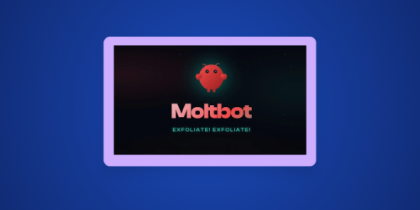GameLoop is a well-known Android emulator for playing mobile games on a PC. However, as the emulator grew in popularity, so did concerns about its safety, especially with players running into antivirus warnings, unexpected pop-ups, and modified installers from third-party websites.
Are you wondering, “Is GameLoop safe?” In this guide, we’ll break down whether GameLoop is genuinely safe to install, the privacy and security concerns you should be aware of, and how to download and use it without exposing your device or data.
What Is GameLoop and How Does It Work?
Developed by Tencent, GameLoop is designed primarily for playing mobile games on Windows desktops and laptops. Originally launched as the official emulator for PUBG Mobile, it has since expanded to support thousands of titles, including Call of Duty: Mobile, Free Fire, Arena of Valor, and many others.
GameLoop creates a virtual Android environment on your computer, allowing you to run mobile apps with keyboard and mouse controls instead of touch input. The emulator handles game rendering, keymapping, and network optimization so mobile games can run smoothly on desktop hardware.
It also includes built-in tools like game optimization settings, performance modes, and a game center for downloading titles directly from the platform. Since it integrates closely with Tencent’s gaming ecosystem, many games receive native support, resulting in better stability and performance compared to generic Android emulators.
Is GameLoop Safe to Download?
GameLoop is generally safe to download as long as you get it from the official site (gameloop.com). The emulator itself is not malware, and millions of players use it without security issues. However, many users still run into antivirus warnings or suspicious pop-ups during installation, and that’s where most concerns come from.
Gamers often get alerts while installing GameLoop, and this is usually due to how the emulator works, not because it’s harmful. Here are the real reasons:
GameLoop Installs Low-Level Network Drivers
To optimize online gaming, GameLoop installs:
- Network acceleration services
- Virtual network drivers
- Kernel-level components used for ping optimization
Security software flags these because malware also installs low-level drivers, even though GameLoop’s components are legitimate.
It Runs Several Background Processes
GameLoop launches multiple services for:
- Game rendering
- Keymapping
- Performance tuning
- Anti-cheat compatibility
Some antivirus tools report this as “suspicious behavior” simply because many apps don’t install this many system processes at once.
The Installer Downloads Additional Components
GameLoop uses a web-based installer. You download a small EXE, and the rest of the emulator installs from the internet. Antivirus tools tend to be stricter with web installers because they dynamically fetch files, a behavior that malicious installers also use.
Ads and Promotion Modules Resemble Adware Patterns
GameLoop includes an advertising framework in the Game Center, promotional banners, and
recommended game modules. These aren’t harmful, but they behave similarly to adware, which is why some antivirus tools flag the activity.
Unofficial Download Sites Cause Most Real Risks
Many users accidentally download GameLoop from Softonic, Uptodown, random mirror sites, or “boosted” ads on Google. These sites often repackage installers in third-party download managers that do trigger valid warnings, so you should always download GameLoop only from the official site or other verified sources.
Key Privacy and Security Concerns of Using GameLoop
Even if you download the official version, GameLoop still comes with some privacy considerations worth keeping in mind, particularly because it is developed by Tencent and operates deeper in the system than typical PC apps. Here’s what you should know:
Data Collection and Telemetry
GameLoop collects a range of diagnostic and usage data, including device specs, network information, system performance metrics, and gameplay behavior. While this is common for gaming platforms, privacy-focused users may want to be aware of the extent of telemetry and where this data is processed.
Potential China-Based Data Handling
Because GameLoop is owned by Tencent, some users are concerned about data routing and storage practices. Tencent does not publicly disclose full details of where GameLoop data is processed, which raises valid questions for users who prefer clear transparency about data flows.
Account Privacy Risks Inside the Emulator
Some players log into Google, Facebook, or game accounts from within GameLoop. Doing so technically exposes your login tokens to a virtualized environment, which increases the risk if your PC is already compromised, you accidentally install plugins/add-ons not from Tencent, or you modify GameLoop files. It’s not a GameLoop flaw, just a general risk of using Android emulators.
Advertising and Tracking Inside GameLoop
The Game Center includes ads, recommended titles, and promotional banners driven by tracking modules. These are legitimate but may collect engagement data and browsing behavior within the launcher.
How to Download and Use GameLoop Safely
Downloading GameLoop from the official source is the most important step, but there are a few additional precautions that can help protect your device and data”
- Download Only from the Official Site: Always get GameLoop from gameloop.com or verified Tencent links. Avoid Softonic, Uptodown, or random mirror sites, which often bundle installers with unwanted add-ons or repackaged files that trigger antivirus warnings.
- Check the Installer’s Digital Signature: Right-click the installer > Properties > Digital Signatures. The publisher should show Tencent. If the signature is missing or from an unfamiliar name, do not proceed.
- Scan the File Before Installing: Even when downloading from the official source, run the installer through Windows Defender or your antivirus as a precaution. This helps detect compromised or tampered files if you accidentally downloaded the wrong version.
- Avoid Installing Third-Party GameLoop Plug-ins or Tweaks: Sites offering “FPS boosters,” “performance mods,” or “GameLoop add-ons” often include malware or keyloggers. Only use the settings and tools built into the official emulator.
- Enable 2FA: If you log in with Google, Facebook, or game accounts inside GameLoop, enable two-factor authentication (2FA) to prevent unauthorized access, especially because login tokens run in a virtual environment.
Final Verdict
GameLoop is safe to download and use as long as you install it from the official site and avoid third-party mirrors. The emulator itself isn’t harmful, but its system-level components, ads, and telemetry can raise questions for privacy-conscious users. With a few precautions, you can enjoy GameLoop without putting your device or data at risk.
Frequently Asked Questions
GameLoop is owned and developed by Tencent, one of the world’s largest technology and gaming companies. Tencent originally created it as the official emulator for PUBG Mobile, and it now supports a wide range of mobile games on PC.
No, GameLoop is not malware when downloaded from the official site. However, unofficial versions from third-party sites may include unwanted software, bundled components, or malicious modifications that can trigger antivirus warnings.
GameLoop is trusted by millions of players worldwide, The emulator is safe to use, although some users remain cautious because it installs drivers, background services, and ad modules that may trigger security alerts.
Yes, GameLoop is completely free to download and use. It makes money through in-platform ads and promotions inside the Game Center, not through paid subscriptions or fees.
It can on lower-end systems. GameLoop uses considerable CPU, RAM, and GPU resources because it emulates a full Android environment. On capable PCs, performance is smooth, but older machines may experience slower performance or higher temperatures during gameplay.








